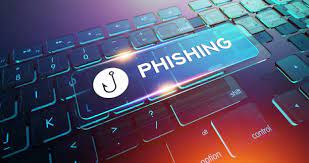Did you receive an Email from Coinbase telling you that your identity has not been verified? Read this review to find out why you should be wary of such mails.
What is Coinbase support Email
Coinbase support Email are fraudulent phishing spam mails sent by scammers to get your personal information so they can use it to scam you. The scam emails are disguised as verification requests from Coinbase – cryptocurrency. It must be emphasized that these mails are fake and in no way associated with Coinbase.
They claim that recipients need to verify their crypto-wallets to meet the newest regulations. If the verification is not completed until a specific date, the wallet will be restricted, they are however links created by the scammers to obtain personal information from unsuspecting people. The link however links to other phishing websites that trick victims and also hacks their personal information.. However when one clicks on the links they inadvertently send their information to the scammers who uses it fraudulently.
The main purpose of this phishing email is to deceive recipients who are Coinbase users into providing their login credentials on a fake Coinbase website. Stolen accounts could be used to make fraudulent purchases and transactions, sold to third parties (other cyber criminals), and misused for other malicious purposes.
Coinbase Scam Mail Format
The Coinbase mail usually comes in this format,
”COINBASE
The ability to log in your account has been disabled until we can further verify your identity. Please this is for your account security. In order to unlock your account’s full functionalities, please verify your identity by providing a valid ID Document.
-For further assistance with this issue, please contact our support team here.
The fake Coinbase website looks nearly 100% identical to the genuine one. Coinbase staff will never ask you for your password, 2-factor authentication codes, or request remote access to your computer. If you are being asked to provide any of this, you can be sure the email did not originate from Coinbase. Emails from Coinbase will always have the coinbase.com domain name at the end of them. For example, emails from support@coinbase.com, contact@coinbase.com, no-reply@coinbase.com, and any other email from the @coinbase.com domain can be trusted.
Coinbase also sends emails from Coinbase sub-domains. For example, emails from contact@updates.coinbase.com or info@cb.mail.coinbase.com are valid. Note that the email address ends in .coinbase.com.
Regardless of sub-domain, coinbase cryptographically sign all of their emails using DKIM and they also protect the domain against unsigned email with DMARC.
To verify the legitimacy of other channels, refer to these pages for social media and phone support.
. Upon opening such malicious files , infectious files trigger malware download/installation. It is advised against opening suspicious and irrelevant emails. The attachments and links present in these letters – must not be opened, as they can cause system infections. It is recommended to use Microsoft Office versions released after 2010.
You may also get other similar mails as they come in various form, it is in your own best interest that you don’t click on it, simply delete it and inform others so they don’t fall victim.
If you mistakenly clicked on the link, you can quickly change your password.
Conclusion
From the Foregoing, it is clear that the Coinbase support email is a phishing scam, Users should not click on the link if and when they receive such message. Spam campaigns are employed not just for various scams but also to proliferate malware (e.g., trojans, ransomware, cryptocurrency miners, etc.). Spam mail is quite widespread – therefore, it is strongly advised to exercise caution with incoming emails and messages
To Read Further on other Online scams, Click Here.


